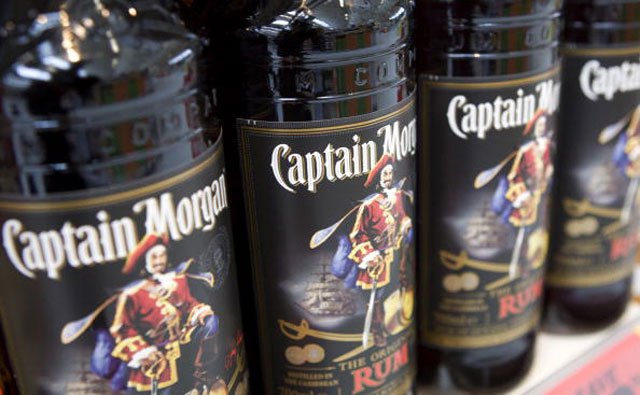Fiscal cliff is a term many are happy to put behind them, but a look at the deal the Senate and House passed brings up a surprising inclusion — an excise tax on rum from Puerto Rico and the U.S. Virgin Islands which helps subsidize rum production by Diageo’s Captain Morgan and Bacardi.
According to PRI’s The World, the United States has levied an excise tax on rum imported into the country since 1917. This generates hundreds of millions of dollars a year and if the rum comes from U.S. territories, Puerto Rico and the U.S. Virgin Islands, the tax revenue goes right back to those territories, where officials use much of it to subsidize rum production.
So while the fiscal cliff deal raised taxes on the wealthy, provided benefits for 2 million unemployed Americans and postponed $109 billion in deep spending cuts, it also included additions not many people know about.
The tax amounts to $13.50 per gallon paid by consumers who buy rum from Puerto Rico and the U.S. Virgin Islands, Washington’s News Tribune reports. Taxpayer groups contend liquor companies benefit because the territorial governments can provide as much as 35 percent of the revenue to distillers to help market rum in the U.S.
But the extension of the tax should not have been surprising. In April, The Virgin Islands non-voting representative, Donna M.C. Christensen, testified before the Ways and Means committee, that her and Puerto Rico’s delegate, Pedro Pierluisi, wanted the provision to be extended for two more years.
“It is not a tax credit or a tax benefit for businesses or individuals,” she said. “[It] does not increase taxes; it does not decrease taxes. The tax policy behind [it] is not temporary or new.”
Christensen went on to explain that the excise tax has existed as part of the fundamental tax relationship between the U.S. and its territories for over 100 years.
“The tax imposed on rum manufactured in the Virgin Islands and Puerto Rico and shipped to the United States is not an ordinary excise tax intended to raise revenue for the United States, but rather, as the courts have recognized, an “equalization” tax intended to regulate commerce between the territories and the United States and to preserve a “level playing field” between territorial and mainland distillers,” she said.
Nonetheless, libertarian think tank the Cato Institute, calls the provision “corporate welfare.”
“The program is worth about $450 million per year to the governments of these Caribbean territories,” the Cato Institute wrote after the policy was extended.
“Giving a slice of that to rum producers brings in the lobbying power to keep the program in place, even as it drastically distorts the rum market at the expense of everyone else.”
Diageo did not answer a request for comment but spokeswoman Brooke Lawer has previously called the concerns of competitive disadvantage overblown, according to the Associated Press.
She cited figures from the Geneva-based International Trade Center, showing Caribbean community rum exports to the U.S. increased by 18 percent in the first half of 2012 over the same period the previous year.She said the subsidies the British company receives are similar to incentives from U.S. states or other countries to attract industry and do not create a competitive disadvantage. by Adrian Carrasquillo [NBC]


